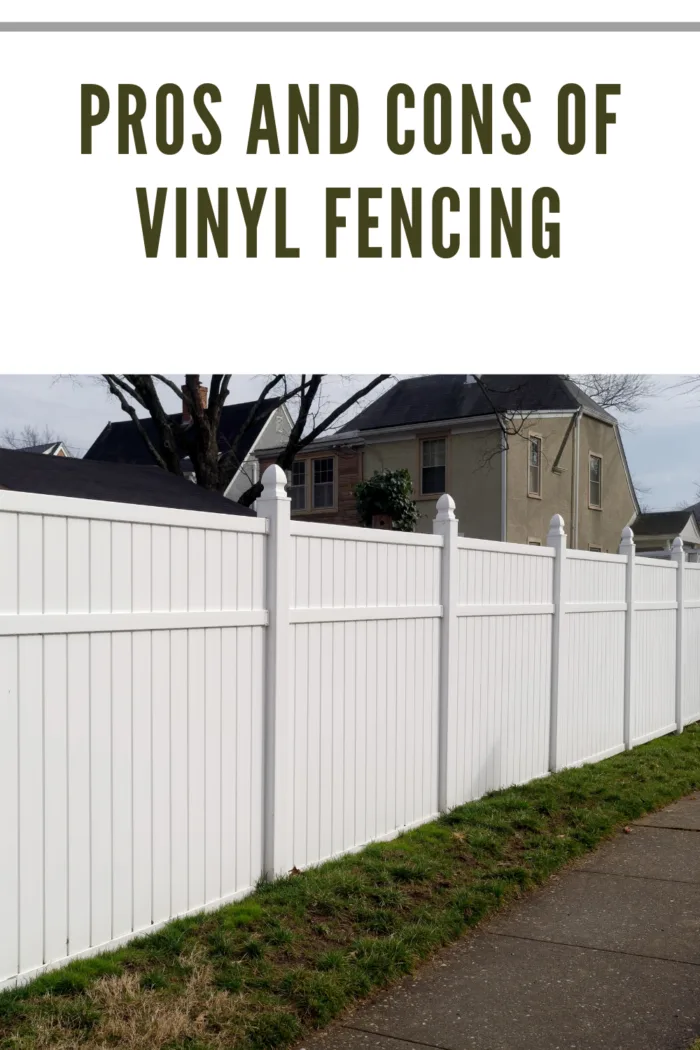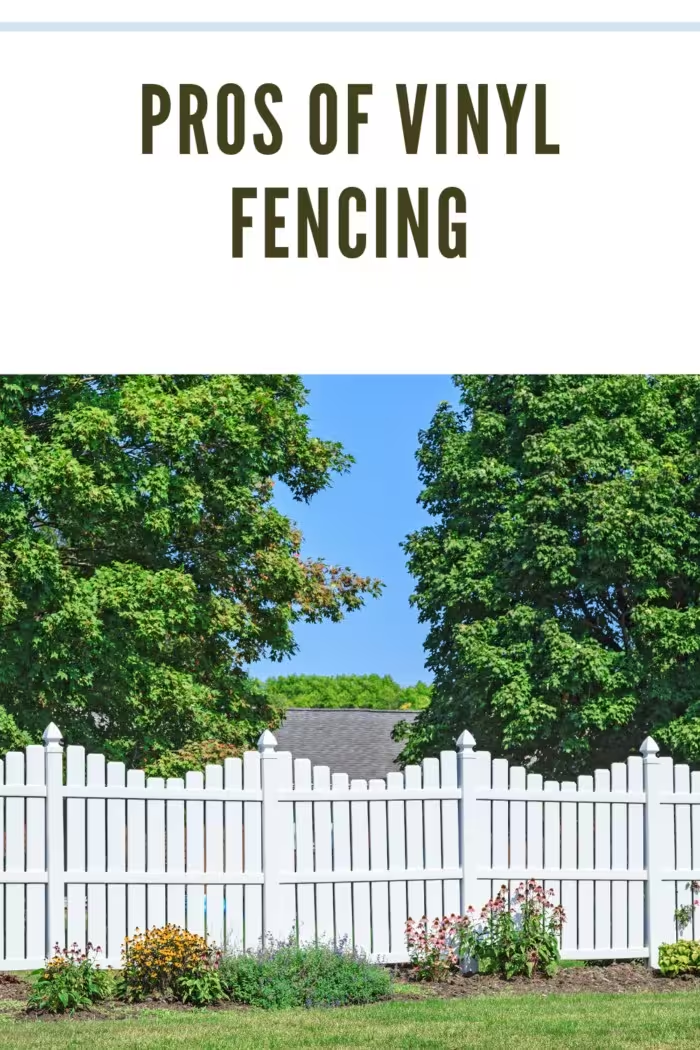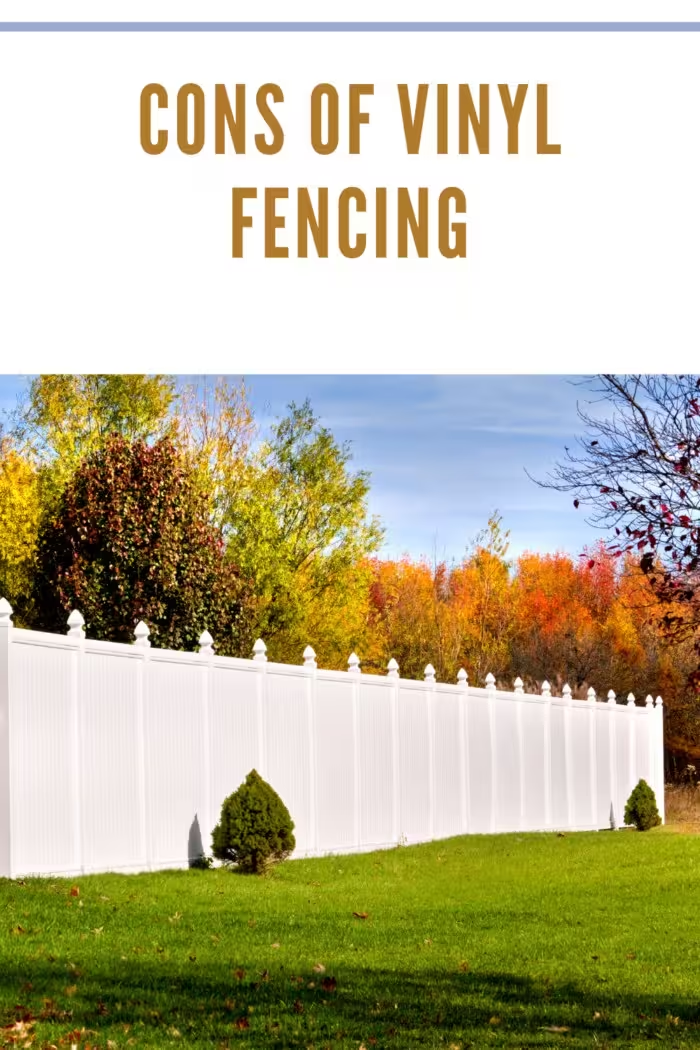Explore the pros and cons of vinyl fencing: from its low maintenance and durability to potential style and cost concerns.
Vinyl fences have increased in popularity over the past few years due to their versatile nature and meager maintenance costs. Vinyl fences are available in different colors and finishes. After installation, a vinyl fence requires very little maintenance. Painting jobs are unnecessary while the material is self-protected from termites or rotting.
Vinyl fences first came onto the market in the early 1980s, with their popularity slowly increasing. Vinyl fences usually come with a multi-year warranty; most fences last well beyond their advertised shelf life. It is also possible to recycle a vinyl fence for other purposes if you use it. All these benefits make vinyl fences a perfect choice for homeowners who want a cost-effective, sturdy, and worry-free fence.

Pros and Cons of Vinyl Fencing
Vinyl Fence Pros:
Strength and Flexibility –
Vinyl is around five times stronger than wood, which means a vinyl fence is sturdier and has more chances of staying in prime condition for several years. While wood fences are susceptible to breaking under extreme weather, the flexibility of vinyl ensures this will not happen to your vinyl fence. Wood fences also suffer when located near the ocean due to the constant contact with seawater. This problem does not exist with vinyl fences.
Efficient Maintenance –
A vinyl fence requires nothing more than a regular clean-up to stay in top condition. Cleaning the fence with water and soap is more than enough. Vinyl fences do not lose their color over time, making paint jobs unnecessary. There is also no need to protect the fence from rust, rotting, or termites because the material can withstand these issues on its own.
No Toxic Chemicals –
Unlike a wood fence, there is no need to continually treat the vinyl with hazardous materials to keep away rot or termites. Also, the recyclability of vinyl means there is no waste if the fence is removed after a few years.
Cost-Effective –
Some vinyl fences may cost more upfront than a wood fence, but this material’s long-lasting and maintenance-free nature leads to long-term savings. While a wood fence requires extra work a few times a year, a vinyl fence remains in prime condition for many years.

Vinyl Fence Cons:
Upfront Cost –
A vinyl fence will save you money over a three to five-year period. However, the upfront cost is often higher than that of wood fences. Getting a wood fence might be preferable if you do not have extra money to spend on a wall now.
Mildew –
If a vinyl fence sits near water sprinklers, the possibility of mildew increases a great deal. This is not a significant concern because the mildew is removable with water and a cloth. However, constantly having to remove mildew from a fence can get tedious.
Fewer Color and Style Choices –
Wood fences might require more maintenance, but they also offer more variety in colors and styles. Depending on your preferences, you can have wood painted or stained in any shade or style. Some excellent deck staining contractors can stain wood fences professionally and efficiently.

